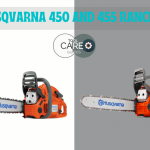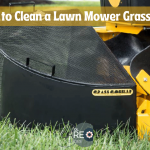Quick Overview of This Article
A perfectly maintained hydraulic fluid wood splitter means a faster yard clean-up with less maintenance. Current technological improvements have seen people use different hydraulic splitters, including an electric log splitter and gas log splitters. However, the use of splitters that use hydraulic systems requires a deeper understanding for better results.
Your hydraulic log splitter requires the right motor oil for it to function optimally. Therefore, manufacturers will give the best recommendations for your machine to use. However, it would be best if you considered factors that optimize your wood splitter’s performance concerning its parts.
Therefore this brief but detailed article will inform you about the best log splitter hydraulic oil concerning the many parts of your self-lubricating log splitter, log splitter manufacturer instructions, and log splitter maintenance tips.
How does hydraulics work?
For your log and wood splitters to function optimally, the right hydraulic oil must serve them. However, manufacturers always recommend the best hydraulic oil to use for your machine before you purchase. Many times, manufacturers recommend Dexron III automatic transmission fluid. This log splitter hydraulic fluid has supreme characteristics that make it the best for log splitters. Below are adaptations of this auto transmission fluid to its functions.
The fluid reservoir
The reservoir is where the oil-to-log splitter is held and transfers heat into the hydraulic cylinder from the oil filling plug to remove needed air.
The pump
The pump works through pressure. It, therefore, moves the fluid in the reservoir on the basic rule of moving fluids through pressure. Furthermore, the pressure created is responsible for the system’s mechanical energy, allowing your wood splitter to work perfectly for you.
The valves
Valves aid the direct fluid movement in the hydraulic system. On the other hand, valves are made to adapt into the hydraulic system according to make. Therefore these valves can be controlled by mechanical, manual, electric hydraulic, or even through pneumatic methods depending on their make in the system.
Actuators
Actuators convert hydraulic energy into mechanical energy. It, therefore, can look different from another depending on the make of your log splitter.
What is the best hydraulic oil I should use in my log splitter?
Hydraulic oil is either lube or a power transfer device in any hydraulic using the machine. It, therefore, lubricates the system and provides means to transfer power within the system. For best results, you need to use the best classification of hydraulic oil. Therefore, hydraulic oil is classified into different types that include:
Frame resistant hydraulic oil
For your machine to function optimally, there must be no change in the density of the hydraulic fluid. Therefore the lubricating oil can burn under high temperatures. It should, however, not burn into flames, nor should it change its natural state. However, flame retardant hydraulic oil is used to reduce the risk of fire caused by high temperatures due to friction.
Wear-resistant lubricant
Your wood splitter may be subjected to many instances of friction as well as adverse temperature changes. And this occurs during the many seasons of the year that include the warmest season. Therefore, a proper lubricant must be in place to ensure the system copes up with the stressors. To however insure against the risk, a grill is fitted against the hydraulic oil tank to prevent tear and wear.
Environmental friendly
This hydraulic fluid used must be environmentally friendly. It must not use a lot of energy to run simultaneously and must have high pollution rates. Therefore a biodegradable base fluid is used to degenerate naturally in case of a massive spill.
Despite the environment of use, ensure that you include the following in your hydraulic fluid:
- Antifoaming agent. This agent reduces foam formation within the fluid in case it has impurities.
- Antiwear: A frequently moving machine is many times subjected to tear and wear. However, with necessary regulations, an antiwear mechanism extends the life of the machinery. However, it is explicitly found in AW-type hydraulic fluids.
- Anti-oxidant: Many times, the lubricant in your wood splitter needs changing. However, how many times can you change a lubricant for a frequently used machine? This can prove tiresome now and then. Therefore an anti-oxidant allows extended use of your lubricant without changing the oil.
Best practices with hydraulics
To ensure that your log splitter sees many days, there are basic practices to put in place. Despite the manufacturer providing instructions for use, other best practices ensure that your machine keeps serving you and seeing many days on earth. Therefore, these best practices are set to cater to the environment and machine and improve the quality of the log splitter’s services. But first, let us look at the basic characteristics that make the Dexron III automatic transmission fluid best for your log splitter.
Antiwear
A hydraulic wood splitter, just like any other machine, is subjected to tear and wear. However, Your antiwear hydraulic fluid must have the potential of prolonging its life by reducing friction. Therefore, this hydraulic fluid has antiwear properties that protect your machine by providing enough lubrication.
Cold flow
Best hydraulic fluid will many times withstand bad weather conditions that include extremely cold conditions. At this point, if the hydraulic fluid freezes, then your machine also stops functioning. For best practices, ensure that the hydraulic fluid does not freeze during extremely cold weather conditions or condone during extremely harsh weather conditions.
Antifoaming
Some hydraulics may contain detergents that may form foam and reduce the quality of your wood splitter power. However, antifoaming agents reduce this foam to make it more effective and safe to use.
Anti-rust
Your log splitter can many times be subjected to corrosion of component surfaces. Rust increases the chances of friction; therefore, tear and wear occur faster than expected. Your preferred hydraulic fluid must have the potential to withstand salt-like conditions hence protecting your wood splitter.
Frequently asked questions
Get to know the difference between hydraulic brake fluid and hydraulic oil?
There is no difference. However, hydraulic oil and hydraulic fluid are many times used interchangeably. However, there exists a difference in terms of their composition. While the hydraulic oil is just fluid, the hydraulic fluid contains other fluids, including plain water, water-oil emulsions, and salt solutions.
What is the oil viscosity index?
Viscosity grade is an important term used to refer to hydraulic fluids. Viscosity is majorly associated with a couple of troubleshooting questions. However, it refers to the ability of the fluid’s resistance to flow.
In many cases, weather can affect the viscosity index. You will experience thicker when the weather is cooler and a high viscosity index when the weather is hotter or warmer.
When should I change my hydraulic fluid?
Your splitter should be working as it should. Therefore you must maintain a constant change of the hydraulic fluids. There are benefits to changing your hydraulic fluids. And this includes preventing improper fluid levels, which can prevent your splitter from working.
A Couple of troubleshooting questions are easily solved by checking for fluid levels and leaks within the splitter’s hydraulic system. Therefore to prevent a breakdown, ensure to check the fluid levels after a time frame of just 100 hours of service.
What troubleshooting criteria should I use?
It is necessary to understand the troubleshooting criteria to know how to solve a given problem if your machine fails. Below is the procedure that will get you going.
The first step should be checking if there are leaks in the hydraulic fluid chamber. If you happen to suspect that your wood splitter is failing because of leaks, ensure that you pass a piece of wood or board below the damaged area. However, wear gloves to avoid contact with dangerous fluids, which can be murky at sight.
Fill the hydraulic fluid. In many cases, your machine will have less power if it has less fluid. Therefore to add hydraulic fluid, you must first remove the oil filling plug, then use the hydraulic oil filter and fill the hydraulic fluid until it is three-quarters full.
After adding the right amount of hydraulic fluid, remove the hydraulic pump to bleed the trapped air from the cylinder. This is first done by extending the piston rod to its maximum length to remove the oil filling plug. To release the air, ensure that you twist the release screw counter in an anticlockwise direction to draw back the rod into the cylinder.
Step 4- lubricate beam. This is easily accomplished by buying a self-lubricating log splitter that automatically cleans the log parts after use. Hence you will not have to lubricate them now and then. Consider sharpening the blades regularly and storing your machine in a dry place. However, consider removing worn-out log splitter parts.
Can I use motor oil instead of hydraulic fluid?
No. You cannot use motor oil or multigrade Engine oil instead of hydraulic fluid. There are basic qualities that make the hydraulic fluid more preferred than the motor oil. Motor oil is fragile at high temperatures and can burst into flames. However, it does not expand uniformly, and its viscosity index is uneven, so your log splitter will not work with motor oil.
So, What Hydraulic Fluid to Use In a Log Splitter?
If you frequently operate or own a log splitter, ensure that you frequently pay attention to its hydraulic fluid levels, therefore considering the manufacturer’s recommendation about maintenance of the machine.




